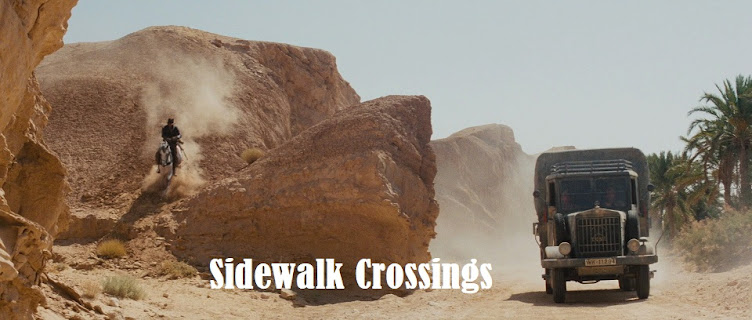This is an atmospheric stylized Macbeth. The score drones on and on, but it does work within the context of the film. The movie was filmed in England and Scotland, and it looks fantastic. Some parts reminded me visually of Valhalla Rising (2009). What I like about this film is precisely what some fans may dislike about it: the Macbeths are not shown as such over-the-top flat-out evil and ambitious characters. Both are given more human reasons for their actions, and as each act of violence steers them farther down a path they cannot return from, you see the toll it takes on them until they are destroyed by their own overwhelming sense of guilt as much as anything else.
The movie opens with a scene that is not in the play (though it could be extrapolated from Lady Macbeth's dialogue later), namely, the funeral of their young son. This serves several purposes and for this version of the play, is essential. It instantly gives both characters a great loss to overcome, and one that shadows both of them throughout the play. Particularly Lady Macbeth, who reacts badly to the death of the Macduffs and, as her own complicity and guilt wrack her, she sees images of her lost child. You get the immediate sense that had the child lived, things would have gone very differently. But no, he died, and they are a bereft and childless couple who have nothing but their service, and little reward for that.
Even so, Macbeth faithfully carries out the king's orders in a battle in the beginning. The King has sent him a bunch of boys to augment his army, and Macbeth reacts to their youth and inexperience with a great sadness, though he carries out his orders. He and the older soldiers touchingly arm the younger ones for the coming battle. He bonds with one of the young men, clearly seeing him almost as the son he might have had. When the young man is killed in battle, it's a second blow, almost as devastating as the loss of his biological son. This Macbeth is weary, ravaged by battle and death, but faithful to the king.
Until, of course, the witches deliver their prophecies. There are only four of them here, and most of supernatural stuff is removed. I like that about this version.
Macbeth makes the mistake of sending his wife a letter about the witches' prophecies, and that is, of course, when things begin to go south for the pair. With her son taken from her, you really get the sense that she is sick of being beaten down by life, that she has nothing left to lose, that she's ready to seize whatever opportunity comes along to better their lives. Power cannot substitute for life, but it is still a powerful drug. With the witches' prophecy already half proved true, why not grab the crown? I've always loved that Macbeth still tries to back out at this point. This Macbeth knows full well it's wrong. Without Lady Macbeth to push him, again, things could have turned out differently. And who knows, he still might have ended up as king, rightfully, without the murders.
The movie uses the dead son and the killed boy to represent what each Macbeth craved and lost. Lady Macbeth's famous speech is delivered to her dead son. Macbeth repeatedly sees the young man who was killed in battle at important moments. I liked those elements a lot. They ground it and are quite effective at maintaining the focus.
The cast suits this version very well. Michael Fassbender (Macbeth) and Marion Cotillard (Lady Macbeth) are excellent. They are both far more sympathetic than the play's usual version of the characters. It's a joy to watch them in this movie. Macbeth descends rapidly into his own guilt-ridden madness, each act of violence pushing him further from his initial humanity. She drives the action, until he goes even farther than she is willing to go (when he has the Macduff family burned at the stake -- again, this movie shows how much children mean to these characters) and then her own guilt destroys her. I really love the two of them together, and when things fall apart, when they take that fateful, brutal step forward, they are engaging to watch, and they kept my interest throughout. I also like the sort of return to dignity Macbeth has at the very end, when he knows it's too late and it's all over for him.
The supporting actors are good as well. David Thewlis as Duncan, Paddy Considine as Banquo, Elizabeth Debicki as Lady Macduff. I'm not as fond of Sean Harris's Macduff. I'm not sure what I want in the role, but his portrayal doesn't resonate for me the way I want Macduff to resonate. For me, he's the weak link in this film.
This is an R-Rated movie for a reason, and the violence is bloody and brutal.
This has been my entry for the We Love Shakespeare Week. Thanks to Hamlette for hosting!




















